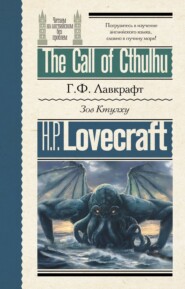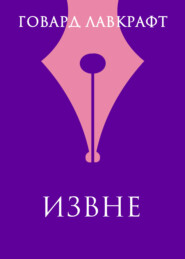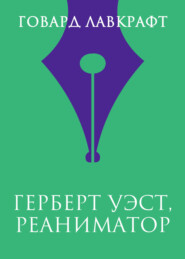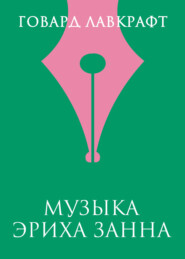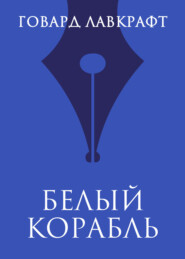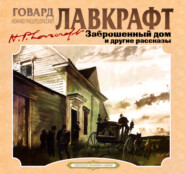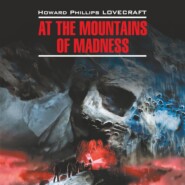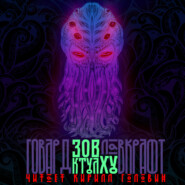По всем вопросам обращайтесь на: info@litportal.ru
(©) 2003-2025.
✖
Selected Stories
Настройки чтения
Размер шрифта
Высота строк
Поля
For it had come from the large covered vat in that ghoulish corner of crawling black shadows.
VI. THE TOMB-LEGIONS
When Dr Herbert West disappeared a year ago, the Boston police questioned me closely. They suspected that I was holding something back, and perhaps suspected even graver things; but I could not tell them the truth because they would not have believed it. They knew, indeed, that West had been connected with activities beyond the credence of ordinary men; for his hideous experiments in the reanimation of dead bodies had long been too extensive to admit of perfect secrecy; but the final soul-shattering catastrophe held elements of demoniac phantasy which make even me doubt the reality in what I saw.
I was West’s closest friend and only confidential assistant. We had met years before, in medical school, and from the first I had shared his terrible researches. He had slowly tried to perfect a solution which, injected into the veins of the newly deceased, would restore life; a labour demanding an abundance of fresh corpses and therefore involving the most unnatural actions. Still more shocking were the products of some of the experiments – grisly masses of flesh that had been dead, but that West waked to a blind, brainless, nauseous animation. These were the usual results, for in order to reawaken the mind it was necessary to have specimens so absolutely fresh that no decay could possibly affect the delicate brain cells.
This need for very fresh corpses had been West’s moral undoing. They were hard to get, and one awful day he had secured his specimen while it was still alive and vigorous. A struggle, a needle, and a powerful alkaloid had transformed it to a very fresh corpse, and the experiment had succeeded for a brief and memorable moment; but West had emerged with a soul calloused and seared, and a hardened eye which sometimes glanced with a kind of hideous and calculating appraisal at men of especially sensitive brain and especially vigorous physique. Towards the last I became acutely afraid of West, for he began to look at me that way. People did not seem to notice his glances, but they noticed my fear; and after his disappearance used that as a basis for some absurd suspicions.
West, in reality, was more afraid than I; for his abominable pursuits entailed a life of furtiveness and dread of every shadow. Partly it was the police he feared; but sometimes his nervousness was deeper and more nebulous, touching on certain indescribable things into which he had injected a morbid life, and from which he had not seen that life depart. He usually finished his experiments with a revolver, but a few times he had not been quick enough. There was that first specimen on whose rifled grave marks of clawing were later seen. There was also that Arkham professor’s body which had done cannibal things before it had been captured and thrust unidentified into a madhouse cell at Sefton, where it beat the walls for sixteen years. Most of the other possibly surviving results were things less easy to speak of – for in later years West’s scientific zeal had degenerated to an unhealthy and fantastic mania, and he had spent his chief skill in vitalizing not entire human bodies but isolated parts of bodies, or parts joined to organic matter other than human. It had become fiendishly disgusting by the time he disappeared; many of the experiments could not even be hinted at in print. The Great War, through which both of us served surgeons, had intensified this side of West.
In saying that West’s fear of his specimens was nebulous, I have in mind particularly its complex nature. Part of it came merely from knowing of the existence of such nameless monsters, while another part arose from apprehension of the bodily harm they might under certain circumstances do him. Their disappearance added horror to the situation – of them all West knew the whereabouts of only one, the pitiful asylum thing. Then there was a more subtle fear – a very fantastic sensation resulting from a curious experiment in the Canadian army in 1915. West, in the midst of a severe battle, had reanimated Major Sir Eric Moreland Clapham-Lee, D.S.O., a fellow-physician who knew about his experiments and could have duplicated them. The head had been removed, so that the possibilities of quasi-intelligent life in the trunk might be investigated. Just as the building was wiped out by a German shell, there had been a success. The trunk had moved intelligently; and, unbelievably to relate, we were both sickeningly sure that articulate sounds had come from the detached head as it lay in a shadowy corner of the laboratory. The shell had been merciful, in a way – but West could never feel as certain as he wished, that we two were the only survivors. He used to make shuddering conjectures about the possible actions of a headless physician with the power of reanimating the dead.
West’s last quarters were in a venerable house of much elegance, overlooking one of the oldest burying grounds in Boston. He had chosen the place for purely symbolic and fantastically aesthetic reasons, since most of the interments were of the Colonial period and therefore of little use to a scientist seeking very fresh bodies. The laboratory was in a sub-cellar secretly constructed by imported workmen, and contained a huge incinerator for the quiet and complete disposal of such bodies, or fragments and synthetic mockeries of bodies, as might remain from the morbid experiments and unhallowed amusements of the owner. During the excavation of this cellar the workmen had struck some exceedingly ancient masonry; undoubtedly connected with the old burying ground, yet far too deep to correspond with any known sepulchre therein. After a number of calculations West decided that it represented some secret chamber beneath the tomb of the Averills, where the last interment had been made in 1768. I was with him when he studied the nitrous, dripping walls laid bare by the spades and mattocks of the men, and was prepared for the gruesome thrill which would attend the uncovering of centuried grave-secrets; but for the first time West’s new timidity conquered his natural curiosity, and he betrayed his degenerating fibre by ordering the masonry left intact and plastered over. Thus it remained till that final hellish night, part of the walls of the secret laboratory. I speak of West’s decadence, but must add that it was a purely mental and intangible thing. Outwardly he was the same to the last – calm, cold, slight, and yellow-haired, with spectacled blue eyes and a general aspect of youth which years and fears seemed never to change. He seemed calm even when he thought of that clawed grave and looked over his shoulder; even when he thought of the carnivorous thing that gnawed and pawed at Sefton bars.
The end of Herbert West began one evening in our joint study when he was dividing his curious glance between the newspaper and me. A strange headline item had struck at him from the crumpled pages, and a nameless titan claw had seemed to reach down through sixteen years. Something fearsome and incredible had happened at Sefton Asylum fifty miles away, stunning the neighbourhood and baffling the police. In the small hours of the morning a body of silent men had entered the grounds and their leader had aroused the attendants. He was a menacing military figure who talked without moving his lips and whose voice seemed almost ventriloquially connected with an immense black case he carried. His expressionless face was handsome to the point of radiant beauty, but had shocked the superintendent when the hall light fell on it – for it was a wax face with eyes of painted glass. Some nameless accident had befallen this man. A larger man guided his steps; a repellent hulk whose bluish face seemed half eaten away by some unknown malady. The speaker had asked for the custody of the cannibal monster committed from Arkham sixteen years before; and upon being refused, gave a signal which precipitated a shocking riot. The fiends had beaten, trampled, and bitten every attendant who did not flee; killing four and finally succeeding in the liberation of the monster. Those victims who could recall the event without hysteria swore that the creatures had acted less like men than like unthinkable automata guided by the wax-faced leader. By the time help could be summoned, every trace of the men and of their mad charge had vanished.
From the hour of reading this item until midnight, West sat almost paralysed. At midnight the doorbell rang, startling him fearfully. All the servants were asleep in the attic, so I answered the bell. As I have told the police, there was no wagon in the street; but only a group of strange-looking figures bearing a large square box which they deposited in the hallway after one of them had grunted in a highly unnatural voice, ‘Express – prepaid.’ They filed out of the house with a jerky tread, and as I watched them go I had an odd idea that they were turning towards the ancient cemetery on which the back of the house abutted. When I slammed the door after them West came downstairs and looked at the box. It was about two feet square, and bore West’s correct name and present address. It also bore the inscription, ‘From Eric Moreland Clapham-Lee, St Eloi, Flanders.’ Six years before, in Flanders, a shelled hospital had fallen upon the headless reanimated trunk of Dr Clapham-Lee, and upon the detached head which-perhaps – had uttered articulate sounds.
West was not even excited now. His condition was more ghastly. Quickly he said, ‘It’s the finish – but let’s incinerate – this.’ We carried the thing down to the laboratory – listening. I do not remember many particulars – you can imagine my state of mind – but it is a vicious lie to say it was Herbert West’s body which I put into the incinerator. We both inserted the whole unopened box, closed the door, and started the electricity. Nor did any sound come from the box, after all.
It was West who first noticed the falling plaster on that part of the wall where the ancient tomb masonry had been covered up. I was going to run, but he stopped me. Then I saw a small black aperture, felt a ghoulish wind of ice, and smelled the charnel bowels of a putrescent earth. There was no sound, but just then the electric lights went out and I saw outlined against some phosphoresence of the nether world a horde of silent toiling things which only insanity – or worse – could create. Their outlines were human, semi-human, fractionally human, and not human at all – the horde was grotesquely heterogeneous. They were removing the stones quietly, one by one, from the centuried wall. And then, as the breach became large enough, they came out into the laboratory in a single file; led by a stalking thing with a beautiful head made of wax. A sort of mad-eyed monstrosity behind the leader seized on Herbert West. West did not resist or utter a sound. Then they all sprang at him and tore him to pieces before my eyes, bearing the fragments away into that subterranean vault of fabulous abominations. West’s head was carried off by the wax-headed leader, who wore a Canadian officer’s uniform. As it disappeared I saw that the blue eyes behind the spectacles were hideously blazing with their first touch of frantic, visible emotion.
Servants found me unconscious in the morning. West was gone. The incinerator contained only unidentifiable ashes. Detectives have questioned me, but what can I say? The Sefton tragedy they will not connect with West; not that, nor the men with the box, whose existence they deny. I told them of the vault, and they pointed to the unbroken plaster wall and laughed. So I told them no more. They imply that I am either a madman or a murderer – probably I am mad. But I might not be mad if those accursed tomb-legions had not been so silent.
THE OUTSIDER (#ulink_954f419f-df7e-5586-ba21-9977072990ac)
‘That night the Baron dreamt of many a wo; And all his warrior-guests, with shade and form Of witch, and demon, and large coffin-worm, Were long be-nightmared.’ JOHN KEATS
Unhappy is he to whom the memories of childhood bring only fear and sadness. Wretched is he who looks back upon lone hours in vast and dismal chambers with brown hangings and maddening rows of antique books, or upon awed watches in twilight groves of grotesque, gigantic, and vine-encumbered trees that silently wave twisted branches far aloft. Such a lot the gods gave to me – to me, the dazed, the disappointed; the barren, the broken. And yet I am strangely content and cling desperately to those sere memories, when my mind momentarily threatens to reach beyond to the other.
I know not where I was born, save that the castle was infinitely old and infinitely horrible, full of dark passages and having high ceilings where the eye could find only cobwebs and shadows. The stones in the crumbling corridors seemed always hideously damp, and there was an accursed smell everywhere, as of the piled-up corpses of dead generations. It was never light, so that I used sometimes to light candles and gaze steadily at them for relief, nor was there any sun outdoors, since the terrible trees grew high above the topmost accessible tower. There was one black tower which reached above the trees into the unknown outer sky, but that was partly ruined and could not be ascended save by a well-nigh impossible climb up the sheer wall, stone by stone.
I must have lived years in this place, but I cannot measure the time. Beings must have cared for my needs, yet I cannot recall any person except myself, or anything alive but the noiseless rats and bats and spiders. I think that whoever nursed me must have been shockingly aged, since my first conception of a living person was that of somebody mockingly like myself, yet distorted, shrivelled, and decaying like the castle. To me there was nothing grotesque in the bones and skeletons that strewed some of the stone crypts deep down among the foundations. I fantastically associated these things with everyday events, and thought them more natural than the coloured pictures of living beings which I found in many of the mouldy books. From such books I learned all that I know. No teacher urged or guided me, and I do not recall hearing any human voice in all those years – not even my own; for although I had read of speech, I had never thought to try to speak aloud. My aspect was a matter equally unthought of, for there were no mirrors in the castle, and I merely regarded myself by instinct as akin to the youthful figures I saw drawn and painted in the books. I felt conscious of youth because I remembered so little.
Outside, across the putrid moat and under the dark mute trees, I would often lie and dream for hours about what I read in the books; and would longingly picture myself amidst gay crowds in the sunny world beyond the endless forests. Once I tried to escape from the forest, but as I went further from the castle the shade grew denser and the air more filled with brooding fear; so that I ran frantically back lest I lose my way in a labyrinth of nighted silence.
So through endless twilights I dreamed and waited, though I knew not what I waited for. Then in the shadowy solitude my longing for light grew so frantic that I could rest no more, and I lifted entreating hands to the single black ruined tower that reached above the forest into the unknown outer sky. And at last I resolved to scale that tower, fall though I might; since it were better to glimpse the sky and perish, than to live without ever beholding day.
In the dank twilight I climbed the worn and aged stone stairs till I reached the level where they ceased, and thereafter clung perilously to small footholds leading upward. Ghastly and terrible was that dead, stairless cylinder of rock; black, ruined, and deserted, and sinister with startled bats whose wings made no noise. But more ghastly and terrible still was the slowness of my progress; for climb as I might, the darkness overhead grew no thinner, and a new chill as of haunted and venerable mould assailed me. I shivered as I wondered why I did not reach the light, and would have looked down had I dared. I fancied that night had come suddenly upon me, and vainly groped with one free hand for a window embrasure, that I might peer out and above, and try to judge the height I had attained.
All at once, after an infinity of awesome, sightless, crawling up that concave and desperate precipice, I felt my head touch a solid thing, and I knew I must have gained the roof, or at least some kind of floor. In the darkness I raised my free hand and tested the barrier, finding it stone and immovable. Then came a deadly circuit of the tower, clinging to whatever holds the slimy wall could give; till finally my testing hand found the barrier yielding, and I turned upward again, pushing the slab or door with my head as I used both hands in my fearful ascent. There was no light revealed above, and as my hands went higher I knew that my climb was for the nonce ended; since the slab was the trapdoor of an aperture leading to a level stone surface of greater circumference than the lower tower, no doubt the floor of some lofty and capacious observation chamber. I crawled through carefully, and tried to prevent the heavy slab from falling back into place, but failed in the latter attempt. As I lay exhausted on the stone floor I heard the eerie echoes of its fall, hoped when necessary to pry it up again.
Believing I was now at prodigious height, far above the accursed branches of the wood, I dragged myself up from the floor and fumbled about for windows, that I might look for the first time upon the sky, and the moon and stars of which I had read. But on every hand I was disappointed; since all that I found were vast shelves of marble, bearing odious oblong boxes of disturbing size. More and more I reflected, and wondered what hoary secrets might abide in this high apartment so many aeons cut off from the castle below. Then unexpectedly my hands came upon a doorway, where hung a portal of stone, rough with strange chiselling. Trying it, I found it locked; but with a supreme burst of strength I overcame all obstacles and dragged it open inward. As I did so there came to me the purest ecstasy I have ever known; for shining tranquilly through an ornate grating of iron, and down a short stone passageway of steps that ascended from the newly found doorway, was the radiant full moon, which I had never before seen save in dreams and in vague visions I dared not call memories.
Fancying now that I had attained the very pinnacle of the castle, I commenced to rush up the few steps beyond the door; but the sudden veiling of the moon by a cloud caused me to stumble, and I felt my way more slowly in the dark. It was still very dark when I reached the grating – which I tried carefully and found unlocked, but which I did not open for fear of falling from the amazing height to which I had climbed. Then the moon came out.
Most demoniacal of all shocks is that of the abysmally unexpected and grotesquely unbelievable. Nothing I had before undergone could compare in terror with what I now saw; with the bizarre marvels that sight implied. The sight itself was as simple as it was stupefying, for it was merely this: instead of a dizzying prospect of treetops seen from a lofty eminence, there stretched around me on the level through the grating nothing less than the solid ground, decked and diversified by marble slabs and columns, and overshadowed by an ancient stone church, whose ruined spire gleamed spectrally in the moonlight.
Half unconscious, I opened the grating and staggered out upon the white gravel path that stretched away in two directions. My mind, stunned and chaotic as it was, still held the frantic craving for light; and not even the fantastic wonder which had happened could stay my course. I neither knew nor cared whether my experience was insanity, dreaming, or magic; but was determined to gaze on brilliance and gaiety at any cost. I knew not who I was or what I was, or what my surroundings might be; though as I continued to stumble along I became conscious of a kind of fearsome latent memory that made my progress not wholly fortuitous. I passed under an arch out of that region of slabs and columns, and wandered through the open country; sometimes following the visible road, but sometimes leaving it curiously to tread across meadows where only occasional ruins bespoke the ancient presence of a forgotten road. Once I swam across a swift river where crumbling, mossy masonry told of a bridge long vanished.
Over two hours must have passed before I reached what seemed to be my goal, a venerable ivied castle in a thickly wooded park, maddeningly familiar, yet full of perplexing strangeness to me. I saw that the moat was filled in, and that some of the well-known towers were demolished; whilst new wings existed to confuse the beholder. But what I observed with chief interest and delight were the open windows – gorgeously ablaze with light and sending forth sound of the gayest revelry. Advancing to one of these I looked in and saw an oddly dressed company indeed; making merry, and speaking brightly to one another. I had never, seemingly, heard human speech before and could guess only vaguely what was said. Some of the faces seemed to hold expressions that brought up incredibly remote recollections, others were utterly alien.
I now stepped through the low window into the brilliantly lighted room, stepping as I did so from my single bright moment of hope to my blackest convulsion of despair and realization. The nightmare was quick to come, for as I entered, there occured immediately one of the most terrifying demonstrations I had ever conceived. Scarcely had I crossed the sill when there descended upon the whole company a sudden and unheralded fear of hideous intensity, distorting every face and evoking the most horrible screams from nearly every throat. Flight was universal, and in the clamour and panic several fell in a swoon and were dragged away by their madly fleeing companions. Many covered their eyes with their hands, and plunged blindly and awkwardly in their race to escape, overturning furniture and stumbling against the walls before they managed to reach one of the many doors.
The cries were shocking; and as I stood in the brilliant apartment alone and dazed, listening to their vanishing echoes, I trembled at the thought of what might be lurking near me unseen. At a casual inspection the room seemed deserted, but when I moved towards one of the alcoves I thought I detected a presence there – a hint of motion beyond the golden-arched doorway leading to another and somewhat similar room. As I approached the arch I began to perceive the presence more clearly; and then, with the first and last sound I ever uttered – a ghastly ululation that revolted me almost as poignantly as its noxious cause – I beheld in full, frightful vividness the inconceivable, indescribable, and unmentionable monstrosity which had by its simple appearance changed a merry company to a herd of delirious fugitives.
I cannot even hint what it was like, for it was a compound of all that is unclean, uncanny, unwelcome, abnormal, and detestable. It was the ghoulish shade of decay, antiquity, and dissolution; the putrid, dripping eidolon of unwholesome revelation, the awful baring of that which the merciful earth should always hide. God knows it was not of this world – or no longer of this world – yet to my horror I saw in its eaten-away and bone-revealing outlines a leering, abhorrent travesty on the human shape; and in its mouldy, disintegrating apparel an unspeakable quality that chilled me even more.
I was almost paralysed, but not too much so to make a feeble effort towards flight; a backwards stumble which failed to break the spell in which the nameless, voiceless monster held me. My eyes bewitched by the glassy orbs which stared loathsomely into them, refused to close; though they were mercifully blurred, and showed the terrible object but indistinctly after the first shock. I tried to raise my hand to shut out the sight, yet so stunned were my nerves that my arm could not fully obey my will. The attempt, however, was enough to disturb my balance; so that I had to stagger forwards several steps to avoid falling. As I did so I became suddenly and agonizingly aware of the nearness of the carrion thing, whose hideous hollow breathing I half fancied I could hear. Nearly mad, I found myself yet able to throw out a hand to ward off the foetid apparition which pressed so close; when in one cataclysmic second of cosmic nightmarishness and hellish accident my fingers touched the rotting outstretched paw of the monster beneath the golden arch.
I did not shriek, but all the fiendish ghouls that ride the nightwind shrieked for me as in that same second there crashed down upon my mind a single fleeting avalanche of soul-annihilating memory. I knew in that second all that had been; I remembered beyond the frightful castle and the trees, and recognized the altered edifice in which I now stood; I recognized, most terrible of all, the unholy abomination that stood leering before me as I withdrew my sullied fingers from its own.
But in the cosmos there is balm as well as bitterness, and that balm is nepenthe. In the supreme horror of that second I forgot what had horrified me, and the burst of black memory vanished in a chaos of echoing images. In a dream I fled from that haunted and accursed pile, and ran swiftly and silently in the moonlight. When I returned to the churchyard place of marble and went down the steps I found the stone trap-door immovable; but I was not sorry, for I had hated the antique castle and the trees. Now I ride with the mocking and friendly ghouls on the night-wind, and play by day amongst the catacombs of Nephren-Ka in the sealed and unknown valley of Hadoth by the Nile. I know that light is not for me, save that of the moon over the rock tombs of Neb, nor any gaiety save the unnamed feasts of Nitokris beneath the Great Pyramid; yet in my new wildness and freedom I almost welcome the bitterness of alienage.
For although nepenthe has calmed me, I know always that I am an outsider; a stranger in this century and among those who are still men. This I have known ever since I stretched out my fingers to the abomination within that great gilded frame; stretched out my fingers and touched a cold and unyielding surface of polished glass.
THE COLOUR OUT OF SPACE (#ulink_c54d7f12-bed4-5924-8320-266f09ee6aff)
West of Arkham the hills rise wild, and there are valleys with deep woods that no axe has ever cut. There are dark narrow glens where the trees slope fantastically, and where thin brooklets trickle without ever having caught the glint of sunlight. On the gentler slopes there are farms, ancient and rocky, with squat, moss-coated cottages brooding eternally over old New England secrets in the lee of great ledges; but these are all vacant now; the wide chimneys crumbling and the shingled sides bulging perilously beneath low gambrel roofs.
The old folk have gone away, and foreigners do not like to live there. French-Canadians have tried it, Italians have tried it, and the Poles have come and departed. It is not because of anything that can be seen or heard or handled, but because of something that is imagined. The place is not good for imagination, and does not bring restful dreams at night. It must be this which keeps the foreigners away, for old Ammi Pierce has never told them of anything he recalls from the strange days. Ammi, whose head has been a little queer for years, is the only who still remains, or who ever talks of the strange days; and he dares to do this because his house is so near the open fields and the travelled roads around Arkham.
There was once a road over the hills and through the valleys, that ran straight where the blasted heath is now; but people ceased to use it and a new road was laid curving far towards the south. Traces of the old one can still be found amidst the weeds of a returning wilderness, and some of them will doubtless linger even when half the hollows are flooded for the new reservoir. Then the dark woods will be cut down and the blasted heath will slumber far below blue waters whose surface will mirror the sky and ripple in the sun. And the secrets of the strange days will be one with the deep’s secrets; one with the hidden lore of old ocean, and all the mystery of primal earth.
When I went into the hills and vales to survey for the new reservoir they told me the place was evil. They told me this in Arkham, and because that is a very old town full of witch legends I thought the evil must be something which grandams had whispered to children through centuries. The name ‘blasted heath’ seemed to me very odd and theatrical, and I wondered how it had come into the folklore of a Puritan people. Then I saw that dark westward tangle of glens and slopes for myself, and ceased to wonder at anything beside its own elder mystery. It was morning when I saw it, but shadow lurked always there. The trees grew too thickly, and their trunks were too big for any healthy New England wood. There was too much silence in the dim alleys between them, and the floor was too soft with the dank moss and mattings of infinite years of decay.
In the open spaces, mostly along the line of the old road, there were little hillside farms; sometimes with all the buildings standing, sometimes with only one or two, and sometimes with only a lone chimney or fast-filling cellar. Weeds and briers reigned, and furtive wild things rustled in the undergrowth. Upon everything was a haze of restlessness and oppression; a touch of the unreal and the grotesque, as if some vital element of perspective or chiaroscuro were awry. I did not wonder that the foreigners would not stay, for this was no region to sleep in. It was too much like a landscape of Salvator Rosa; too much like some forbidden woodcut in a tale of terror.
But even all this was not so bad as the blasted heath. I knew it the moment I came upon it at the bottom of a spacious valley; for no other name could fit such a thing, or any other thing fit such a name. It was as if the poet had coined the phrase from having seen this one particular region. It must, I thought as I viewed it, be the outcome of a fire; but why had nothing new ever grown over those five acres of grey desolation that sprawled open to the sky like a great spot eaten by acid in the woods and fields? It lay largely to the north of the ancient road line, but encroached a little on the other side. I felt an odd reluctance about approaching, and did so at last only because my business took me through and past it. There was no vegetation of any kind on that broad expanse, but only a fine grey dust or ash which no wind seemed ever to blow about. The trees near it were sickly and stunted, and many dead trunks stood or lay rotting at the rim. As I walked hurriedly by I saw the tumbled bricks and stones of an old chimney and cellar on my right, and the yawning black maw of an abandoned well whose stagnant vapours played strange tricks with the hues of the sunlight. Even the long, dark woodland climb beyond seemed welcome in contrast, and I marvelled no more at the frightened whispers of Arkham people. There had been no house or ruin near; even in the old days the place must have been lonely and remote. And at twilight, dreading to repass that ominous spot, I walked circuitously back to the town by the curving road on the south. I vaguely wished some clouds would gather, for an odd timidity about the deep skyey voids above had crept into my soul.
In the evening I asked old people in Arkham about the blasted heath, and what was meant by that phrase ‘strange days’ which so many evasively muttered. I could not, however, get any good answers, except that all the mystery was much more recent than I had dreamed. It was not a matter of old legendry at all, but something within the lifetime of those who spoke. It had happened in the ’eighties, and a family had disappeared or was killed. Speakers would not be exact; and because they all told me to pay no attention to old Ammi Pierce’s crazy tales, I sought him out the next morning, having heard that he lived alone in the ancient tottering cottage where the trees first begin to get very thick. It was a fearsomely ancient place, and had begun to exude the faint miasmal odour which clings about houses that have stood too long. Only with persistent knocking could I rouse the aged man, and when he shuffled timidly to the door I could tell he was not glad to see me. He was not so feeble as I had expected; but his eyes drooped in a curious way, and his unkempt clothing and white beard made him seem very worn and dismal.
Not knowing just how he could best be launched on his tales, I feigned a matter of business; told him of my surveying, and asked vague questions about the district. He was far brighter and more educated than I had been led to think, and before I knew it had grasped quite as much of the subject as any man I had talked with in Arkham. He was not like other rustics I had known in the sections where reservoirs were to be. From him there were no protests at the miles of old wood and farmland to be blotted out, though perhaps there would have been had not his home lain outside the bounds of the future lake. Relief was all that he showed; relief at the doom of the dark ancient valleys through which he had roamed all his life. They were better under water now – better under water since the strange days. And with this opening his husky voice sank low, while his body leaned forwards and his right forefinger began to point shakily and impressively.
It was then that I heard the story, and as the rambling voice scraped and whispered on I shivered again and again despite the summer day. Often I had to recall the speaker from ramblings, piece out scientific points which he knew only by a fading parrot memory of professors’ talk, or bridge over gaps where his sense of logic and continuity broke down. When he was done I did not wonder that his mind had snapped a trifle, or that the folk of Arkham would not speak much of the blasted heath. I hurried back before sunset to my hotel, unwilling to have the stars come out above me in the open; and the next day returned to Boston to give up my positon. I could not go into that dim chaos of old forest and slope again, or face another time that grey blasted heath where the black well yawned deep beside the tumbled bricks and stones. The reservoir will soon be built now, and all those elder secrets will be safe forever under watery fathoms. But even then I do not believe I would like to visit that country by night – at least not when the sinister stars are out; and nothing could bribe me to drink the new city water of Arkham.
It all began, old Ammi said, with the meteorite. Before that time there had been no wild legends at all since the witch trials, and even then these western woods were not feared half so much as the small island in the Miskatonic where the devil held court beside a curious stone altar older than the Indians. These were not haunted woods, and their fantastic dusk was never terrible till the strange days. Then there had come that white noontide cloud, that string of explosions in the air, and that pillar of smoke from the valley far in the wood. And by night all Arkham had heard of the great rock that fell out of the sky and bedded itself in the ground beside the well at the Nahum Gardner place. That was the house which had stood where the blasted heath was to come – the trim white Nahum Gardner house amidst its fertile gardens and orchards.
Nahum had come to town to tell people about the stone, and dropped in at Ammi Pierce’s on the way. Ammi was forty then, and all the queer things were fixed very strongly in his mind. He and his wife had gone with the three professors from Miskatonic University who hastened out the next morning to see the weird visitor from unknown stellar space, and had wondered why Nahum had called it so large the day before. It had shrunk, Nahum said, as he pointed out the big brownish mound above the ripped earth and charred grass near the archaic well-sweep in his front yard; but the wise men answered that stones do not shrink. Its heat lingered persistently, and Nahum declared it had glowed faintly in the night. The professors tried it with a geologist’s hammer and found it was oddly soft. It was, in truth, so soft as to be almost plastic; and they gouged rather than chipped a specimen to take back to the college for testing. They took it in an old pail borrowed from Nahum’s kitchen, for even the small piece refused to grow cool. On the trip back they stopped at Ammi’s to rest, and seemed thoughtful when Mrs Pierce remarked that the fragment was growing smaller and burning the bottom of the pail. Truly, it was not large, but perhaps they had taken less than they thought.
The day after that – all this was in June of ’82 – the professors had trooped out again in a great excitement. As they passed Ammi’s they told him what queer things the specimen had done, and how it had faded wholly away when they put it in a glass beaker. The beaker had gone, too, and the wise men talked of the strange stone’s affinity for silicon. It had acted quite unbelievably in that well-ordered laboratory; doing nothing at all and showing no occluded gases when heated on charcoal, being wholly negative in the borax bead, and soon proving itself absolutely non-volatile at any producible temperature, including that of the oxy-hydrogen blowpipe. On an anvil it appeared highly malleable, and in the dark its luminosity was very marked. Stubbornly refusing to grow cool, it soon had the college in a state of real excitement; and when upon heating before the spectroscope it displayed shining bands unlike any known colours of the normal spectrum there was much breathless talk of new elements, bizarre optical properties, and other things which puzzled men of science are wont to say when faced by the unknown.
Hot as it was, they tested it in a crucible with all the proper reagents. Water did nothing. Hydrochloric acid was the same. Nitric acid and even aqua regia merely hissed and spattered against its torrid invulnerability. Ammi had difficulty in recalling all these things, but recognized some solvents as I mentioned them in the usual order of use. There were ammonia and caustic soda, alcohol and ether, nauseous carbon disulphide and a dozen others; but although the weight grew steadily less as time passed, and the fragment seemed to be slightly cooling, there was no change in the solvents to show that they had attacked the substance at all. It was a metal, though, beyond a doubt. It was magnetic, for one thing; and after its immersion in the acid solvents there seemed to be faint traces of the Widmänstätten figures found on meteoric iron. When the cooling had grown very considerable, the testing was carried on in glass; and it was in a glass beaker that they left all the chips made of the original fragment during the work. The next morning both chips and beaker were gone without trace, and only a charred spot marked the place on the wooden shelf where they had been.
All this the professors told Ammi as they paused at his door, and once more he went with them to see the stony messenger from the stars, though this time his wife did not accompany him. It had now most certainly shrunk, and even the sober professors could not doubt the truth of what they saw. All around the dwindling brown lump near the well was a vacant space, except where the earth had caved in; and whereas it had been a good seven feet across the day before, it was now scarcely five. It was still hot, and the sages studied its surface curiously as they detached another and larger piece with hammer and chisel. They gouged deeply this time, and as they pried away the smaller mass they saw that the core of the thing was not quite homogeneous.
They had uncovered what seemed to be the side of a large coloured globule embedded in the substance. The colour, which resembled some of the bands in the meteor’s strange spectrum, was almost impossible to describe; and it was only by analogy that they called it colour at all. Its texture was glossy, and upon tapping it appeared to promise both brittleness and hollowness. One of the professors gave it a smart blow with a hammer, and it burst with a nervous little pop. Nothing was emitted, and all trace of the thing vanished with the puncturing. It left behind a hollow spherical space about three inches across, and all thought it probable that others would be discovered as the enclosing substance wasted away.







